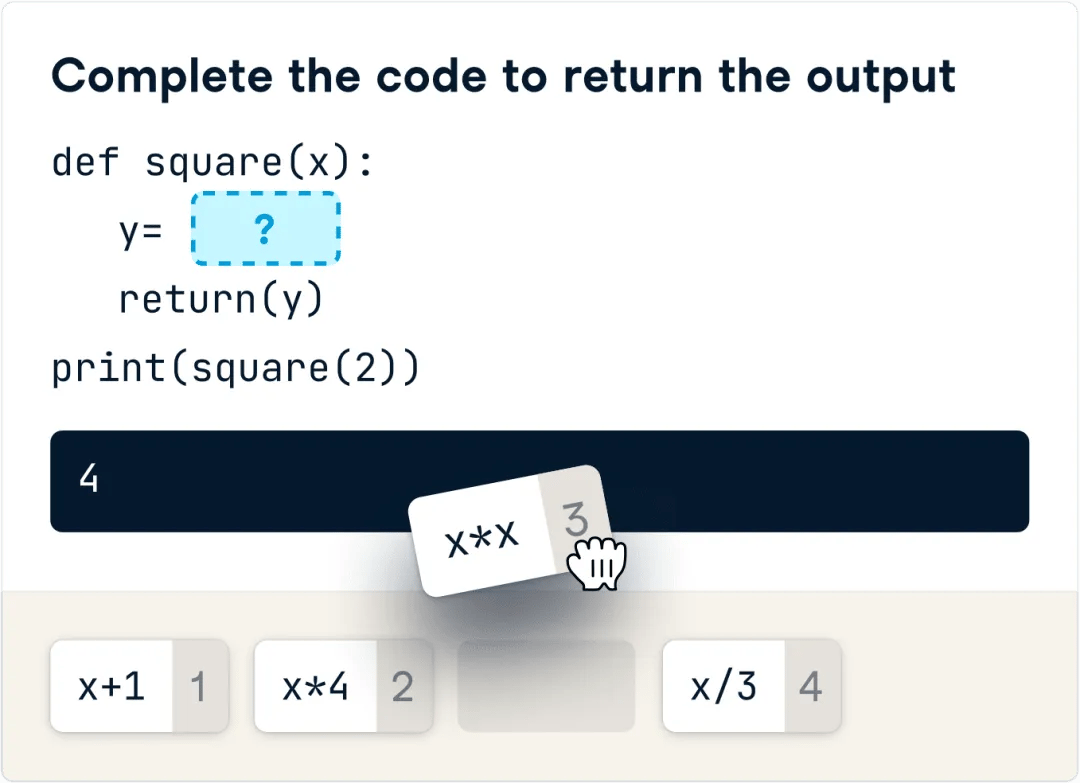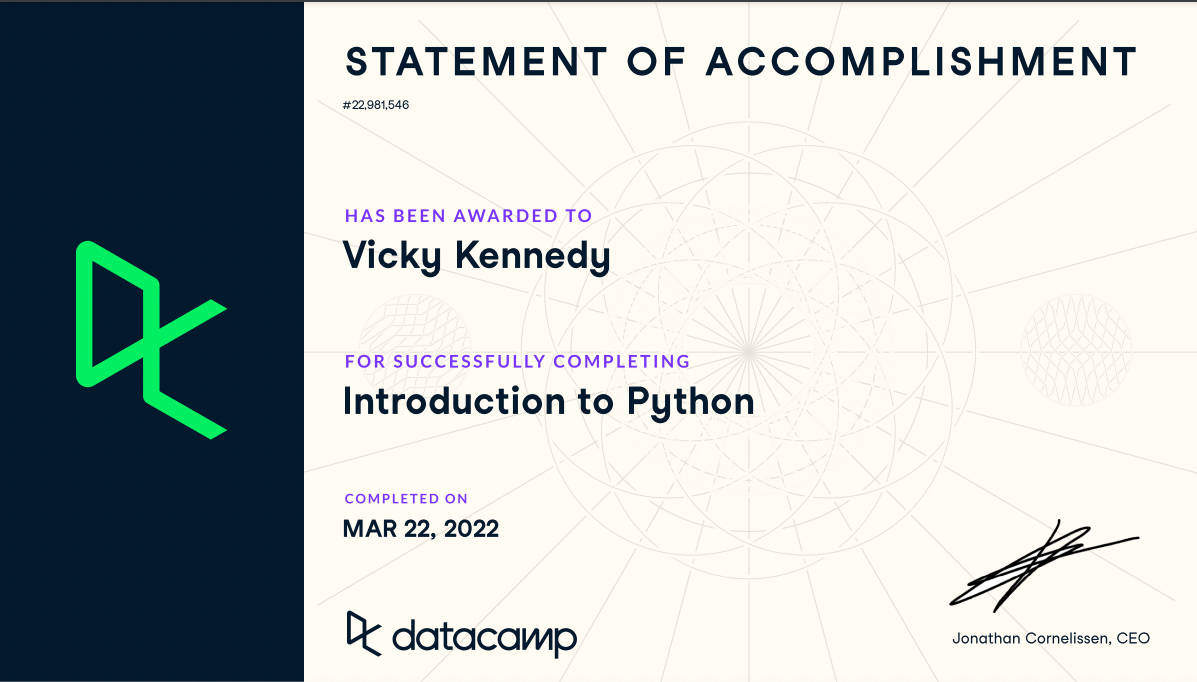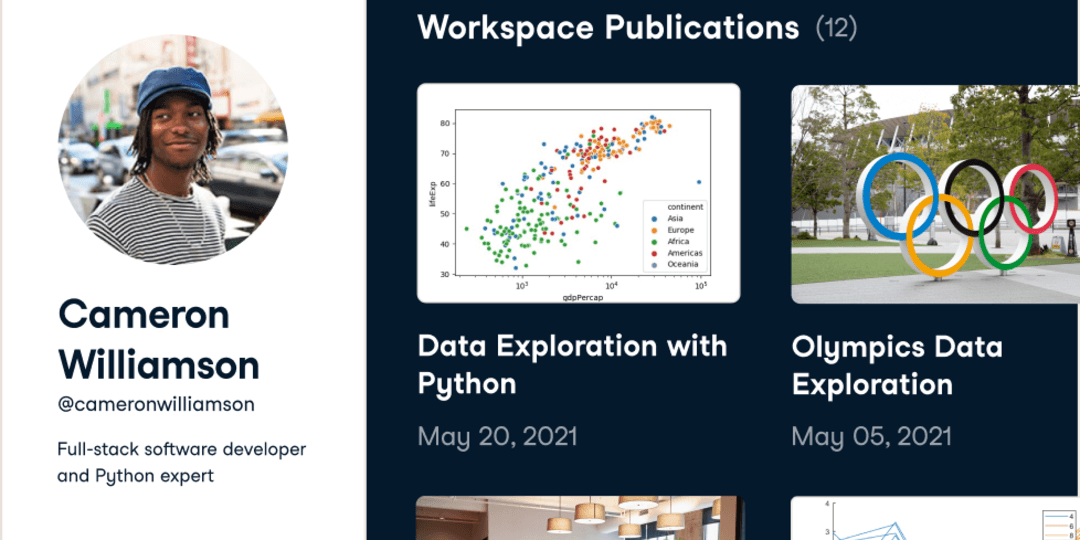Get Ready for Data Science at Columbia University
Hoping to study data science at Columbia University? DataCamp can help you build your data skills across a range of disciplines.
- Learn at your own pace
- Get hands-on experience
- Practice and apply your skills
Create Your Free Account
or
By continuing, you accept our Terms of Use, our Privacy Policy and that your data is stored in the USA.Popular Courses for Columbia University Students
Introduction to Data Science in Python
Dive into data science using Python and learn how to effectively analyze and visualize your data. No coding experience or skills needed.

Hillary Green-Lerman
Lead Data Scientist, Looker
Introduction to Statistics in R
Grow your statistical skills and learn how to collect, analyze, and draw accurate conclusions from data.

Maggie Matsui
Curriculum Manager at DataCamp
Introduction to Statistics
Learn how to explore, visualize, and extract insights from data.

George Boorman
Core Curriculum Manager, DataCamp
Intermediate Python
Level up your data science skills by creating visualizations using Matplotlib and manipulating DataFrames with pandas.

Hugo Bowne-Anderson
Data Scientist at DataCamp
Introduction to Linear Modeling in Python
Explore the concepts and applications of linear models with python and build models to describe, predict, and extract insight from data patterns.

Jason Vestuto
Data Scientist, University of Texas at Austin
Machine Learning for Everyone
An introduction to machine learning with no coding involved.

Hadrien Lacroix
Curriculum Manager at DataCamp

Practice your Data Skills
Practice makes perfect! At DataCamp, you can attempt our byte-sized challenges after each course to test your newly learned skills. Complementing the in-course challenges, DataCamp Projects allows you to execute your acquired abilities in a real-life setting using real-life tools.
Under this umbrella term, there are two separate categories: Guided Projects which provide users with a follow-along guidance approach towards real-life tasks and tests; and Unguided Projects which are perfect for intermediate and advanced students to demonstrate their learning in a more open-ended data science problem.

Work with Real Datasets
With our Workspace Datasets, put your newly acquired skills to the test by dealing with real-world problems. Analyze the data sets from your field of interest in a more applied setting with our end-to-end projects. Champion your abilities from a collection of real-world datasets, including tech data (such as tech stock prices), entertainment data (such as online ticket sales) and health data (such as rates of disease cases).
Gain Sharable Statements of Accomplishments
Every course you complete on DataCamp is rewarded with a shareable Statement of Accomplishment. These can be shared with your network or as part of your Columbia University data science application to show your progress in various subject areas.
As Columbia data science applicants, our data scientist certificates can help you fast-track your data science skills. You can equip yourself with the necessary skills essential to your degree and demonstrate the knowledge you’ve learned along the way.

Compile Your Own Portfolio
Create your own portfolio of projects and gain insights from fellow students on our DataCamp Workspace, a cloud-based collaborative platform where you can share, envision and analyze your data science work. With built-in datasets and accessible templates, you can take your skills to the next level in no time.

Does Columbia have a data science master’s?
Is Columbia’s applied data science program worth it?
What skills do I need before enrolling in a data science course at Columbia?
What are the Columbia entry requirements?
What is the Columbia acceptance rate?
How can I get into Columbia?
Can DataCamp support my studies at Columbia?
Ready to learn?
With our online learning platform, you take an array of courses across different competency levels, all at your own pace. If you’re preparing for your data science journey at Columbia, DataCamp is here to help.